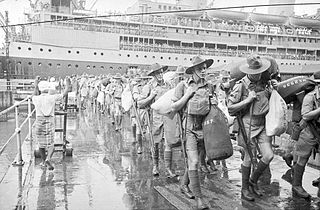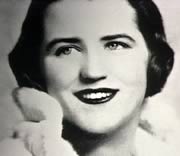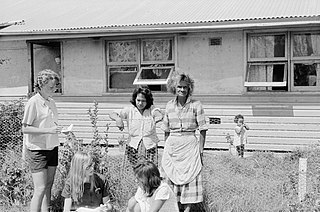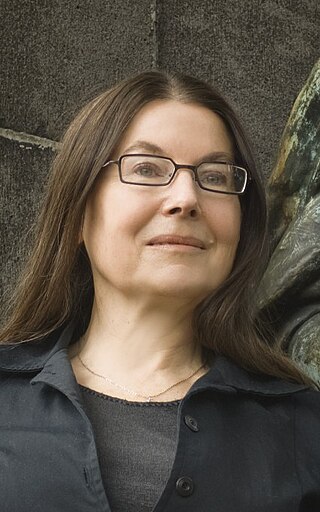Related Research Articles

The 8th Division was an infantry division of the Australian Army, formed during World War II as part of the all-volunteer Second Australian Imperial Force. The 8th Division was raised from volunteers for overseas service from July 1940 onwards. Consisting of three infantry brigades, the intention had been to deploy the division to the Middle East to join the other Australian divisions, but as war with Japan loomed in 1941, the division was divided into four separate forces, which were deployed in different parts of the Asia-Pacific region. All of these formations were destroyed as fighting forces by the end of February 1942 during the fighting for Singapore, and in Rabaul, Ambon, and Timor. Most members of the division became prisoners of war, waiting until the war ended in late 1945 to be liberated. One in three died in captivity.

The Australian Naval and Military Expeditionary Force (AN&MEF) was a small volunteer force of approximately 2,000 men, raised in Australia shortly after the outbreak of World War I to seize and destroy German wireless stations in German New Guinea in the south-west Pacific. The German wireless installations were ordered to be destroyed because they were used by Vizeadmiral Maximilian von Spee's East Asia Squadron of the Imperial German Navy, which threatened merchant shipping in the region. Following the capture of German possessions in the region, the AN&MEF provided occupation forces for the duration of the war. New Zealand provided a similar force for the occupation of German Samoa.

Dame Joan Hilda Hood Hammond, was an Australian operatic soprano, singing coach and champion golfer.
William Edward Hanley Stanner CMG, often cited as W.E.H. Stanner, was an Australian anthropologist who worked extensively with Indigenous Australians. Stanner had a varied career that also included journalism in the 1930s, military service in World War II, and political advice on colonial policy in Africa and the South Pacific in the post-war period.
The history of Australia from 1901 to 1945 begins with the federation of the six colonies to create the Commonwealth of Australia. The young nation joined Britain in the First World War, suffered through the Great Depression in Australia as part of the global Great Depression and again joined Britain in the Second World War against Nazi Germany in 1939. Imperial Japan launched air raids and submarine raids against Australian cities during the Pacific War.
David Murray Horner, is an Australian military historian and academic.

Although most Australian civilians lived far from the front line, the Australian home front during World War II played a significant role in the Allied victory and led to permanent changes to Australian society.
Verity Nancy Burgmann is Adjunct Professor of Politics in the School of Social Sciences at Monash University and Honorary Professorial Fellow in the eScholarship Research Centre at the University of Melbourne, where she is Director of the Reason in Revolt website. In 2013 she was Ludwig Hirschfeld Mack Visiting Professor of Australian Studies in the Institut für Englische Philologie at the Freie Universität Berlin.
Sarah Maddison CF is an Australian author and political scientist.
The 2/21st Battalion was an infantry battalion of the Australian Army. Raised for service during Second World War as part of the Second Australian Imperial Force, it was formed on 11 July 1940 at Trawool in central Victoria as part of the 23rd Brigade of the 8th Division. It was subsequently deployed to Ambon as part of Gull Force in December 1941 following the Japanese invasion of Malaya; however, with the defence of the island considered untenable due to the limited military resources available and overwhelming Japanese strength it was subsequently captured despite determined resistance, surrendering on 3 February 1942. Most members of the battalion became prisoners of war, and a large number died in captivity.

Australian women during World War II played a larger role than women had during World War I.

John Charles Blaxland is an Australian historian, academic, and former Australian Army officer. He is a Professor in Intelligence Studies and International Security at the Strategic and Defence Studies Centre at the Australian National University.
Peter Geoffrey Edwards, AM is an Australian diplomatic and military historian. Educated at the University of Western Australia and the University of Oxford, Edwards worked for the Department of Foreign Affairs, the Australian National University and the University of Adelaide before being appointed Official Historian and general editor of The Official History of Australia's Involvement in Southeast Asian Conflicts 1948–1975 in 1982. The nine-volume history was commissioned to cover Australia's involvement in the Malayan Emergency, Indonesia–Malaysia confrontation and Vietnam War. Edwards spent fourteen years at the Australian War Memorial (AWM) writing two of the volumes, while also researching, editing, and dealing with budget limitations and problems with staff turnover. Since leaving the AWM in 1996, Edwards has worked as a senior academic, scholar and historical consultant. In 2006 his book Arthur Tange: Last of the Mandarins won the Queensland Premier's History Book Award and the Western Australian Premier's Book Award for Non-Fiction.
David Michael Lowe is an Australian biographer and historian of modern international affairs, and of Australia's role therein, especially with reference to Asia and the Pacific.
Janet Susan McCalman, is an Australian social historian, population researcher and author at the Melbourne School of Population and Global Health, University of Melbourne. McCalman won the Ernest Scott Prize in 1985 and 2022 (shared); the second woman to have won and one of eight historians to have won the prize twice.

Ann Curthoys, is an Australian historian and academic.
Lynette Wendy Russell, is an Australian historian, known for her work on the history of Indigenous Australians; in particular, anthropological history ; archaeology; gender and race, Indigenous oral history, and museum studies.
Heather Goodall is an Australian academic and historian. She is Emeritus Professor at the University of Technology Sydney. Her research and writing focuses on Indigenous and environmental history and intercolonial networks.
John David Rickard was an Australian historian who served as Professor of Australian Studies at Monash University from 1995 to 1998 and the visiting Professor of Australian Studies at Harvard University from 1997 to 1998. Rickard won the prestigious Ernest Scott Prize in 1977 for his book Class and Politics: New South Wales, Victoria and the Early Commonwealth, 1890‐1910.

Marian Jane Simms was an Australian political scientist, and was a full professor at the University of Otago, and Deakin University. She specialised in gender studies in leadership and political science.
References
- 1 2 3 4 5 6 7 8 "Beaumont, Prof. Joan Errington". Who's Who in Australia Online. Crown Content. Retrieved 30 March 2015.
- 1 2 3 4 5 6 7 Sharon M. Harrison. "Beaumont, Joan Errington (1948 – )". The Encyclopedia of Women and Leadership in Twentieth-Century Australia. Australian Women's Archives Project 2014. Retrieved 30 March 2015.
- ↑ Joan Beaumont. "Great Britain and the Soviet Union: The Supply of Munitions, 1941–1945". Doctoral Theses. King's College London. Retrieved 2 April 2015.
- ↑ Beaumont, Joan (1988). Gull Force: Survival and Leadership in Captivity, 1941–1945. Sydney: Allen & Unwin. ISBN 9780043020081.
- ↑ "Professor Joan Beaumont". Fellows. Academy of the Social Sciences in Australia. Archived from the original on 3 April 2015. Retrieved 2 April 2015.
- 1 2 3 4 5 "Professor Joan Beaumont". Researchers. Australian National University. Retrieved 2 April 2015.
- ↑ "Fellows of the AIIA". Australian Institute of International Affairs. Retrieved 2 April 2015.
- ↑ "2014 Prime Minister's Literary Award winners". Ministry of the Arts. Australian Government. Archived from the original on 29 April 2015. Retrieved 2 April 2015.
- ↑ "Winners announced for 2014 NSW Premier's History Awards". State Library of NSW. Archived from the original on 31 March 2015. Retrieved 2 April 2015.
- ↑ "2014 Queensland Literary Award Winners". Queensland Literary Awards. Archived from the original on 10 March 2015. Retrieved 2 April 2015.
- ↑ "Asher Award Shortlist 2015". Australian Society of Authors. Archived from the original on 11 December 2015. Retrieved 10 December 2015.
- ↑ "Western Australian Premier's Book Awards – 2014 Shortlist". Western Australian Premier's Book Awards. State Library of Western Australia. Retrieved 2 April 2015.
- ↑ "Australia Day 2020 Honours List" (PDF). Commonwealth of Australia Gazette . 26 January 2020.